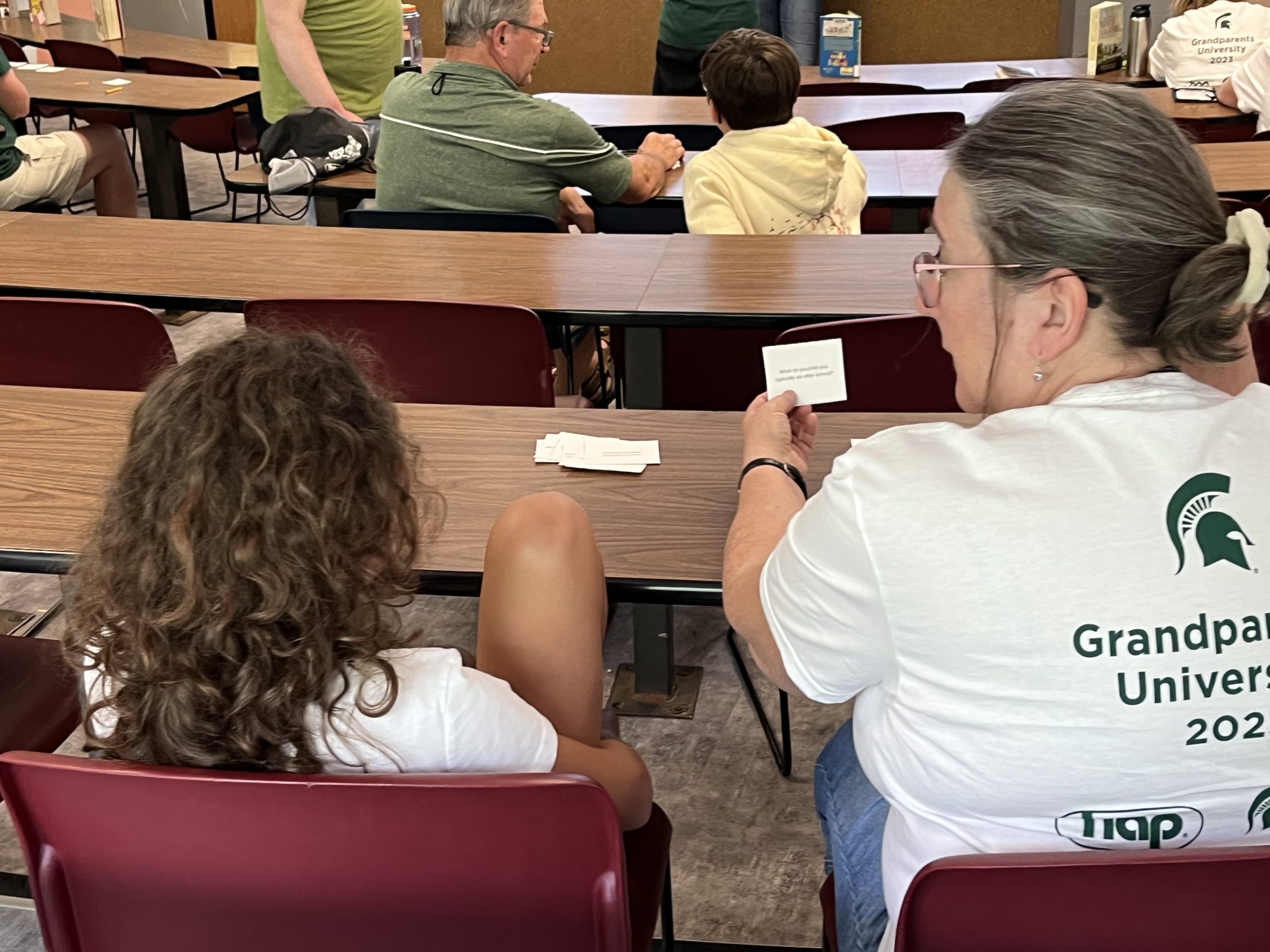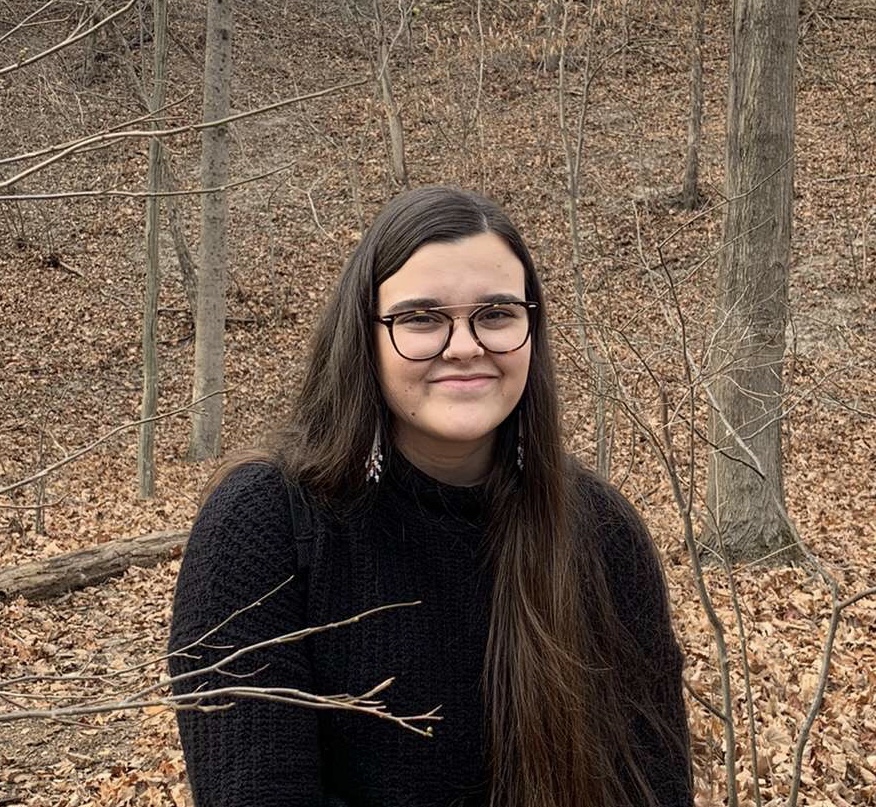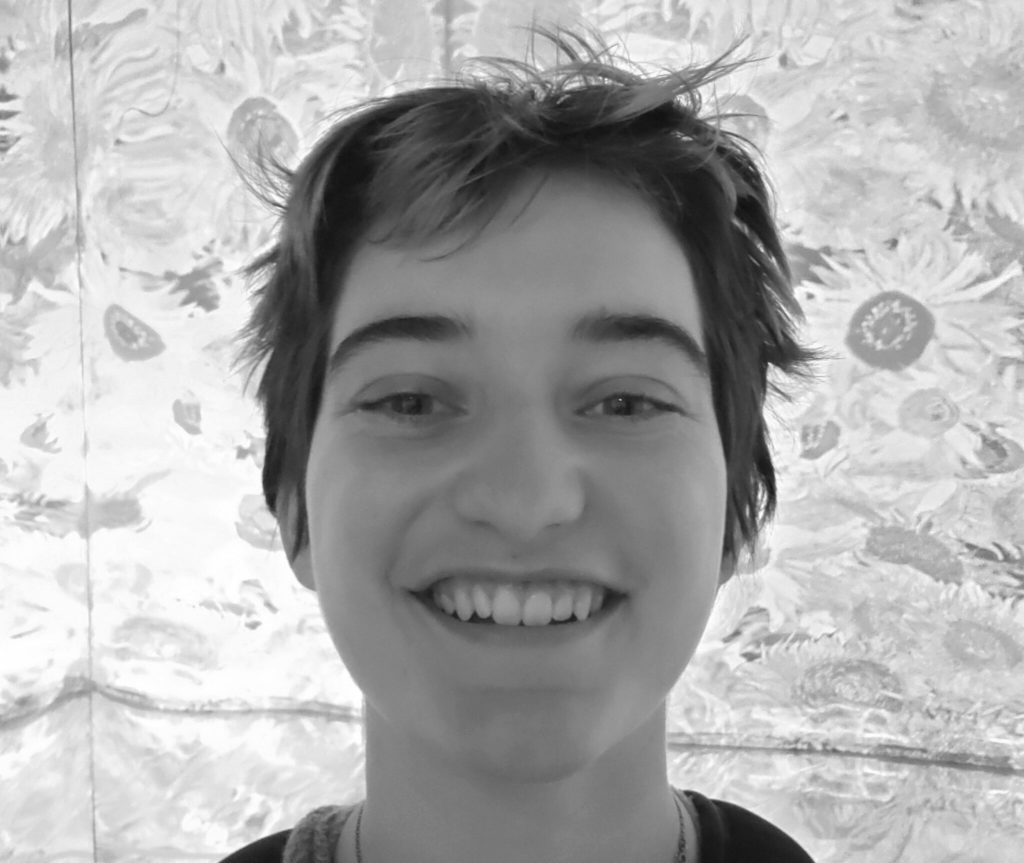Socio Lab members present (and win!) at MSU’s UURAF
Undergraduate students from the MSU Sociolinguistics Lab were well represented at the 2024 University Undergraduate Research and Arts Forum (UURAF) in April. Gage Landeryou and Caroline Zackerman shared research they conducted for their senior theses in Linguistics under the direction of lab co-director Betsy Sneller. Two other lab students, Drake Howard and Lin Cabada, presented on research that they had conducted for faculty supervisors in French and in Writing respectively.
Gage Landeryou gave a winning presentation on transgender speech
Gage Landeryou’s study was titled ExpressING Gender: The effect of situational comfort on (ing) pronunciation in transgender speech. For this innovative work and for an engaging and professional style, Gage was awarded a prize for best oral presentation in the ‘Social Sciences – General’ category.

Students interacted with visitors and judges
UURAF is a huge event. It can be really overwhelming for the in-person, on-site student presenters. According to MSU’s UURAF 2024 website:
The 26th UURAF was held onsite at the Breslin Center and online at Symposium. Over 1,000 students from 12 colleges participated in the event. They were mentored by over 600 faculty, staff, post-doctoral fellows, graduate students, and government/industry partners. There were over 700 presentations in 32 different subject areas.
We’re proud to report that Drake, Caroline, and Lin did a great job of explaining their posters to the many visitors and judges who came to see them.
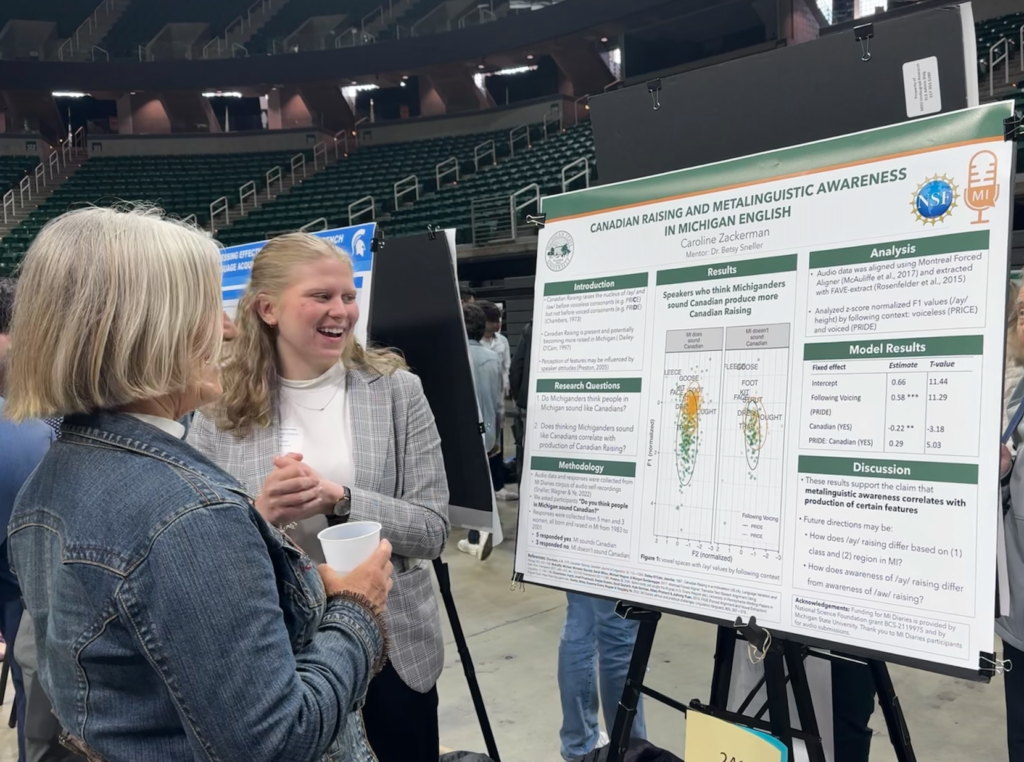
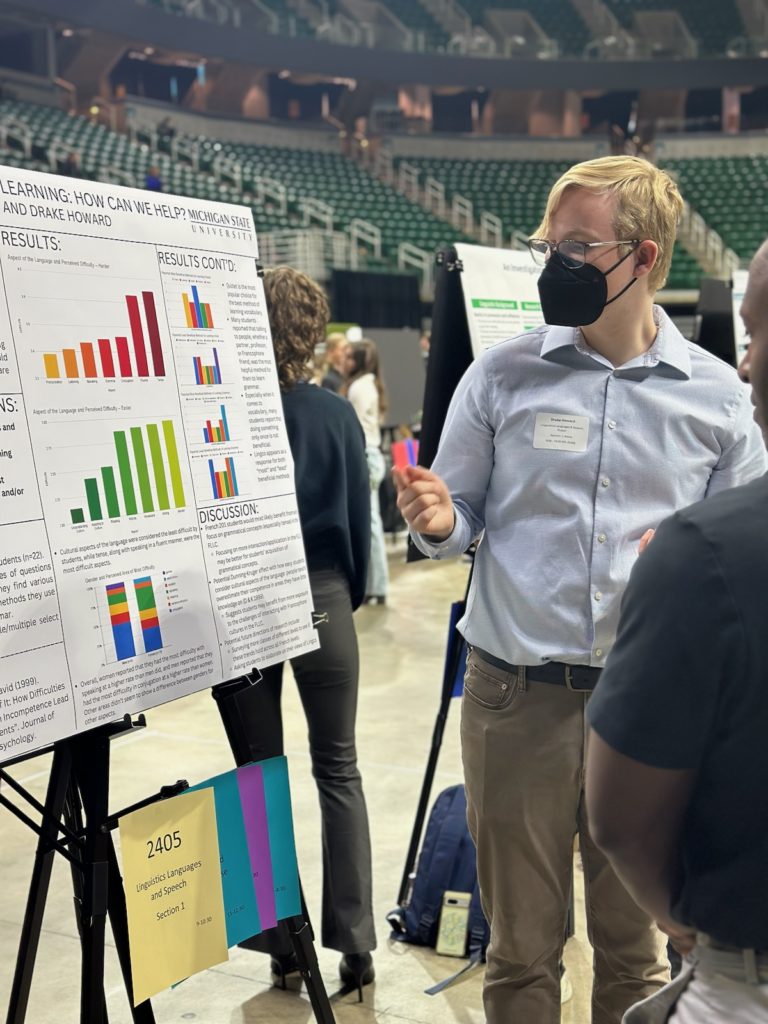
Students’ talks and abstracts
Gage Landeryou
ExpressING Gender: The Effect of Situational Comfort on (ING) Pronunciation in Transgender Speech
This study explores sociolinguistic variation in the speech of binary transgender individuals. My main goal is to investigate how a speaker’s comfort with their own gender expression impacts how much they style shift in their pronunciation of (ING) (e.g., pronouncing “running” either as running or runnin’) between queer-friendly settings (like their home) versus public settings. Following the methodology of Gratton (2016), who found nonbinary individuals style shifting between private and public settings to avoid the threat of misgendering, I conducted sociolinguistic interviews with 4 binary trans individuals. Each person was interviewed first in their home, and then in a public and not explicitly queer-friendly environment (like a coffee shop). Interviews were transcribed and time aligned, and auditorily coded for pronunciation of (ING). The primary research question was: do trans speakers use their pronunciation of (ING) in public settings to mitigate the threat of being misgendered, in the same way that the nonbinary speakers in Gratton (2016) do?Presenter(s):
Mentor: Betsy Sneller (Linguistics)
Caroline Zackerman
Canadian Raising and Metalinguistic Awareness in Michigan English
Canadian Raising is a phonological rule by which the /ay/ diphthong raises before voiceless coda consonants (as in the word PRICE) (Chambers 1973). Speakers of Michigan English do exhibit regular Canadian Raising of /ay/; however, they often consider Canadian Raising to be a uniquely Canadian feature and fail to recognize it in their own speech (Niedzielski 1999; Preston 2005). This study investigates the relationship between a speaker of Michigan English’s degree of Canadian Raising and whether or not they report similarities between Canadian English and Michigan English. Tokens of /ay/ are extracted from 8 speakers aged 22 to 40, all born and raised in Michigan. Participants were then asked whether they think that speakers in Michigan sound Canadian. Responses and data are collected from the MI Diaries Project, which collects responses from participants in the MI Diaries project, which sends weekly prompts to over 1,000 diarists, inviting them to self-record their audio responses. As hypothesized, there is a significant relationship between /ay/ height and a speaker’s response to the Canadian question. All speakers exhibit raised /ay/ before voiceless consonants, but this effect is much stronger, resulting in higher /ay/ values, for speakers that reported thinking that Michigan English sounds Canadian. We therefore conclude that awareness of a feature in one’s dialect is correlated with the production of the feature.
Mentor: Betsy Sneller (Linguistics)
Drake Howard and William McLaren
Difficulties in French learning: How can we help?
When learning a second language, many speakers encounter linguistic differences that interfere with or even inhibit their ability to learn this new language. In this study, we explore what specific hurdles and barriers exist for students learning French at the undergraduate level at MSU. The goal of this study is to obtain a better understanding of what particular aspects of the language are perceived by learners as hurdles or difficulties, what teaching and learning strategies are deemed helpful, and what suggestions they can provide to improve the MSU French curriculum and/or their French learning experience. We look at the responses of students in different levels of French (100, 200, 300, 400) who visited the French Learning Center during the spring semester of 2024, and look for commonalities and differences in their self-reported difficulties in various areas of the language, such as pronunciation, spelling, vocabulary, and grammar. We also examine what teaching and learning techniques are the most and least effective according to students, looking to see if there is a pattern or preferred method(s) to better understand and learn French.
Mentor: Anne Violin-Wigent (French)
Lin Cabada, Alyssa Seville, Giovanni Antonio Ramos Loureiro Kizem Rodrigues, Liam Comrie, Brooklyn Bell
Alleviating Homesickness through Magical Practices involving Culture, Heritage, and Family
This project looked at remedies for homesickness through the lenses of varying cultural beliefs, practices, and superstitions with a focus on magical practices. By examining our personal practices, we explored various remedies that people have used for homesickness throughout different regions and historical periods. With this in mind, we researched indigenous literature, religious practices, and the origins of our own practices and beliefs. Using what we found, we executed a piece of original spell work that encompasses the specific historical, magical practices we researched pertaining to homesickness. This was composed through various representations, such as culturally significant deities, symbols and sigils, religious artifacts, and family heirlooms. Our composition is separated into seven categories that represent the movement of the emotional body through the process of remedying homesickness starting with themes of denial, grief, isolation, and ending with acknowledgment, adaptation, and acceptance. Structured as an offering, the final category represents how in order to fully embrace your new life, you must be willing to leave something behind. These components intentionally span across our intersecting identities as students living away from home, relating to our personal experiences with homesickness.
Mentor: David Watson (Writing, Rhetoric, and American Cultures)

